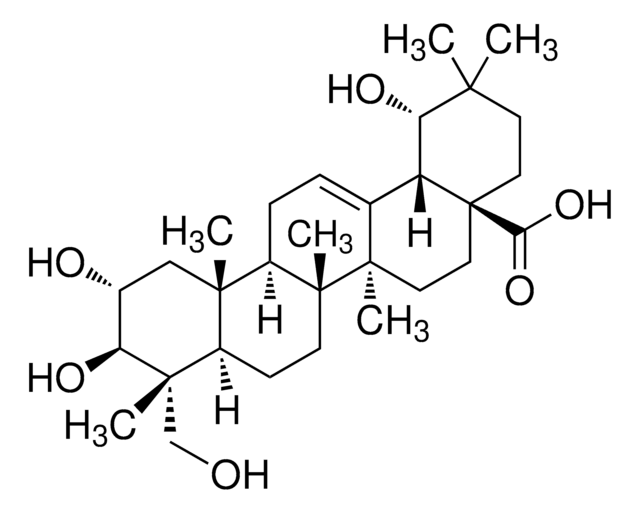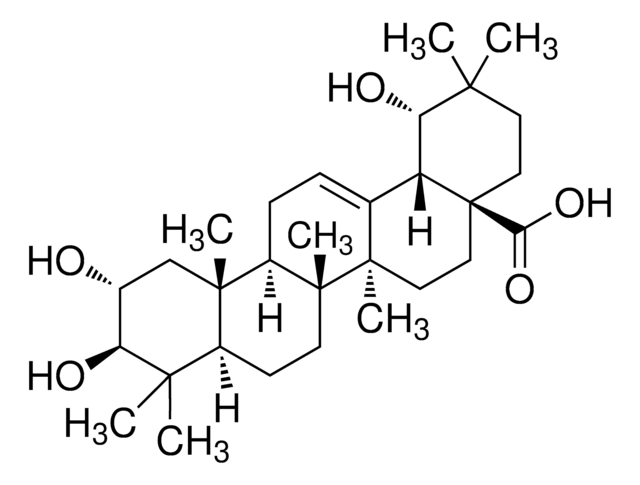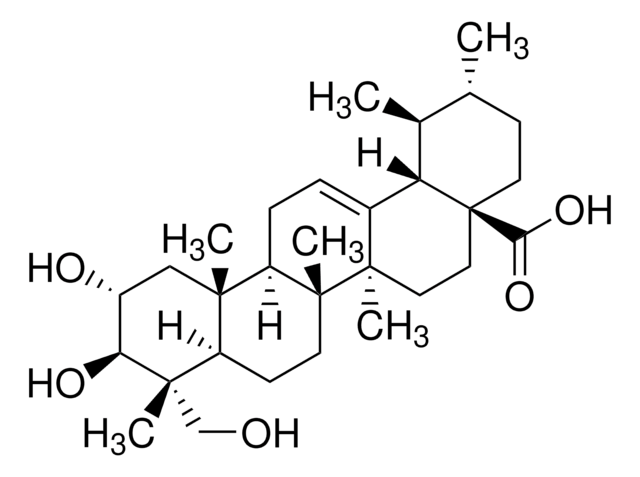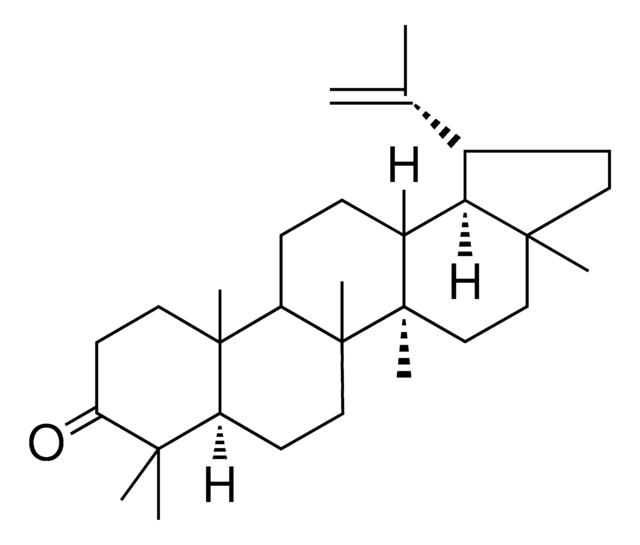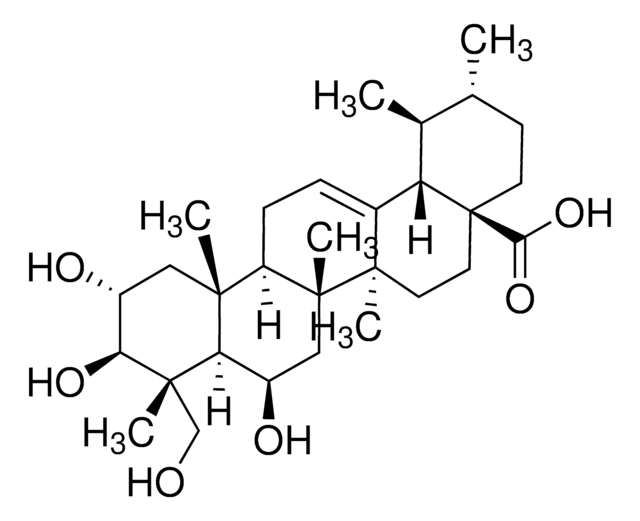Fontos dokumentumok
SMB00119
Arjunolic acid
≥95% (LC/MS-ELSD)
Szinonimák:
2,3,23-Trihydroxyolean-12-en-28-oic acid
About This Item
Javasolt termékek
Minőségi szint
Teszt
≥95% (LC/MS-ELSD)
form
solid
alkalmazás(ok)
metabolomics
vitamins, nutraceuticals, and natural products
tárolási hőmérséklet
−20°C
SMILES string
CC1(C)CC[C@@]2(CC[C@]3(C)C(=CC[C@@H]4[C@@]5(C)C[C@@H](O)[C@H](O)[C@@](C)(CO)[C@@H]5CC[C@@]34C)[C@@H]2C1)C(O)=O
InChI
1S/C30H48O5/c1-25(2)11-13-30(24(34)35)14-12-28(5)18(19(30)15-25)7-8-22-26(3)16-20(32)23(33)27(4,17-31)21(26)9-10-29(22,28)6/h7,19-23,31-33H,8-17H2,1-6H3,(H,34,35)/t19-,20+,21+,22+,23-,26-,27-,28+,29+,30-/m0/s1
Nemzetközi kémiai azonosító kulcs
RWNHLTKFBKYDOJ-DDHMHSPCSA-N
Related Categories
Általános leírás
Biokémiai/fiziológiai hatások
Tárolási osztály kódja
11 - Combustible Solids
WGK
WGK 3
Lobbanási pont (F)
Not applicable
Lobbanási pont (C)
Not applicable
Analitikai tanúsítványok (COA)
Analitikai tanúsítványok (COA) keresése a termék sarzs-/tételszámának megadásával. A sarzs- és tételszámok a termék címkéjén találhatók, a „Lot” vagy „Batch” szavak után.
Már rendelkezik ezzel a termékkel?
Az Ön által nemrégiben megvásárolt termékekre vonatkozó dokumentumokat a Dokumentumtárban találja.
Tudóscsoportunk valamennyi kutatási területen rendelkezik tapasztalattal, beleértve az élettudományt, az anyagtudományt, a kémiai szintézist, a kromatográfiát, az analitikát és még sok más területet.
Lépjen kapcsolatba a szaktanácsadással
